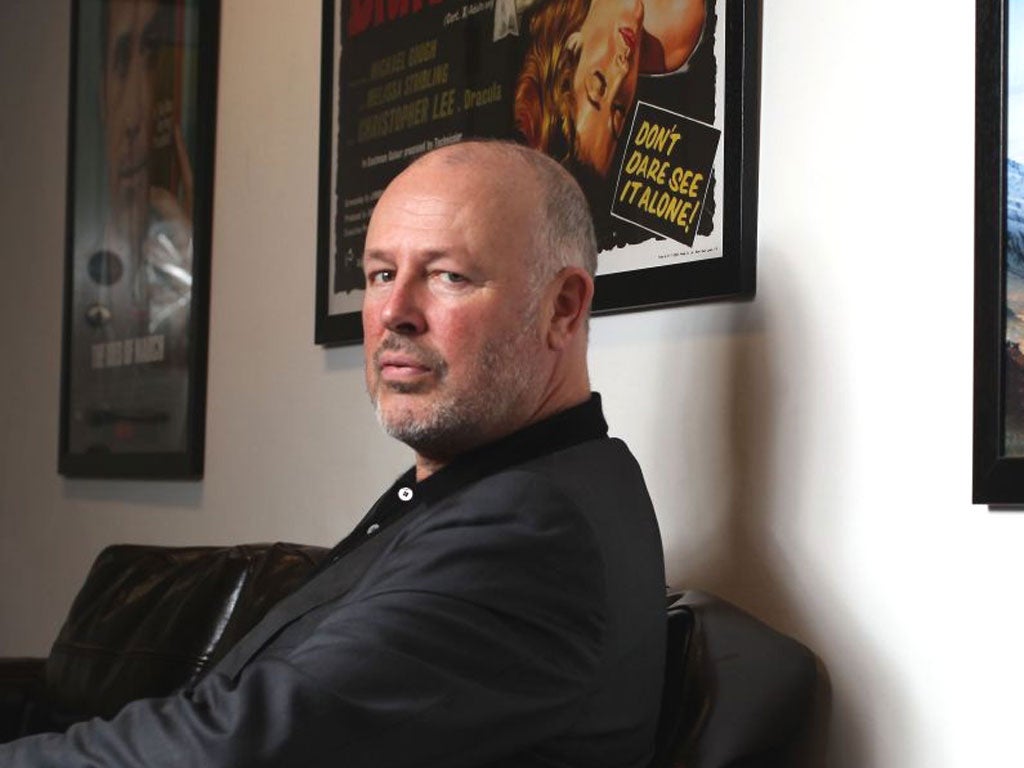The man who has brought Hammer back from the dead

Your support helps us to tell the story
From reproductive rights to climate change to Big Tech, The Independent is on the ground when the story is developing. Whether it's investigating the financials of Elon Musk's pro-Trump PAC or producing our latest documentary, 'The A Word', which shines a light on the American women fighting for reproductive rights, we know how important it is to parse out the facts from the messaging.
At such a critical moment in US history, we need reporters on the ground. Your donation allows us to keep sending journalists to speak to both sides of the story.
The Independent is trusted by Americans across the entire political spectrum. And unlike many other quality news outlets, we choose not to lock Americans out of our reporting and analysis with paywalls. We believe quality journalism should be available to everyone, paid for by those who can afford it.
Your support makes all the difference.Five years ago, Simon Oakes came up with an unlikely plan – to bring Hammer Films back from the dead.
Hammer, which during its golden age in the '50s and '60s produced a string of horror films, had been languishing in the doldrums for 30 years after falling out of fashion.
"Hammer was a part of my youth," Mr Oakes, a former cable television producer, explained. "It was part of our cultural infrastructure."
It was this fondness for the films, coupled with a canny eye for the market, that led him and his colleague Mark Schipper to approach two film producers, Guy East and Nigel Sinclair, and convince investors to back the project.
Three films followed, but it has been the fourth, The Woman in Black, starring Daniel Radcliffe, which has put Hammer back into the mainstream.
The film of the Susan Hill story – a long-time hit on the West End stage – has earned $45m (£28.3m) around the world since it opened 10 days ago, topping the box office in the UK and enjoying one of the most successful openings in the US ever to coincide with Super Bowl weekend.
"We never thought we'd have that phenomenal opening," Mr Oakes said. "It just caught fire. I hope this means Hammer is back. We now have to follow that up; you don't want to be a one-hit wonder.."
The film is rated 12A, a far cry from the X certificate given to earlier Hammer movies like Dracula, in 1958. Some questioned the rating, but Mr Oakes said there had not been problems from teenagers scared by the movie.
Earlier projects for Mr Oakes' team included Irish occult horror Wake Wood, stalker movie The Resident, and Let Me In, a remake of Swedish vampire movie Let the Right One In. They were all the result of a rethinking of what Hammer was about.
He said: "We asked ourselves: if Hammer had carried on from the late 1970s, where would it be today? How would it have progressed?"
However, there are some genres within horror that Hammer is not prepared to tackle, for fear of straying from its roots.
Mr Oakes said there were no plans to make slasher films or anything from the "torture porn" genre, which saw the rise of the Saw and Hostel franchises.
While the production group is now an arm of the US company Exclusive Media, Mr Oakes stressed the importance of Hammer's roots.
"The Britishness is very important," he said. "For Hammer, that is part of its selling point and we will have quite a focus on making movies in the UK."
Hammer's rich history stretches back almost 80 years to William Hinds, a comedian whose stage name was Will Hammer. His film production company, Hammer Productions, did not specialise in horror until 1955, following the success of The Quatermass Experiment. The breakout came with The Curse of Frankenstein (1957) starring Peter Cushing and Christopher Lee, followed by Dracula (1958) which broke box office records around the world.
The production team is currently looking into Hammer's extensive back catalogue for remake material, with Scream of Fear (1961) among the possible projects. And then there are the big two.
"It would be remiss of us if we weren't to look at an approach to Dracula and Frankenstein," Mr Oakes said, adding the company was working on "a modern-day version of Dracula. It's very much in its early stages".
Join our commenting forum
Join thought-provoking conversations, follow other Independent readers and see their replies
Comments